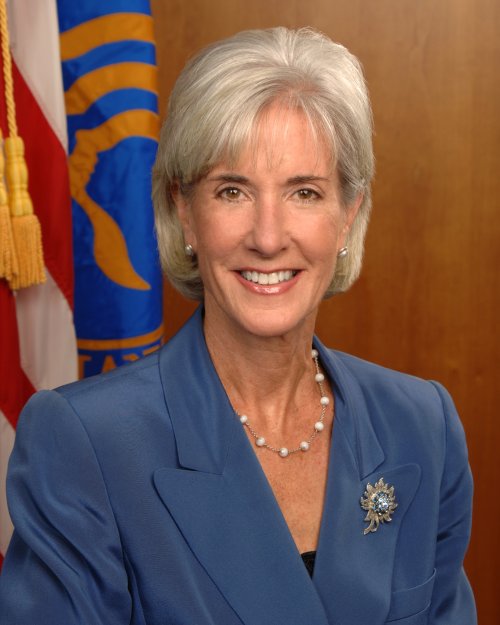We can’t wait: Administration announces new steps to fight Alzheimer’s disease
We can’t wait: Administration announces new steps to fight Alzheimer’s disease
The Obama Administration today announced new efforts to fight Alzheimer’s disease, including immediately making an additional $50 million available for cutting-edge Alzheimer’s research. In addition, the administration announced that its Fiscal Year 2013 budget will boost funding for Alzheimer’s research by $80 million. Today’s announcement also includes an additional $26 million in caregiver support, provider education, public awareness and improvements in data infrastructure.
In January 2011, President Obama signed the National Alzheimer’s Project Act, which calls for an aggressive and coordinated national Alzheimer’s disease plan. The Act also establishes an Advisory Council on Alzheimer’s Research, Care, and Services, which brings together some of the Nation’s foremost experts on Alzheimer’s disease to inform the development of the national plan. The preliminary framework for the National Alzheimer’s Disease Plan identifies key goals including preventing and treating Alzheimer’s disease by 2025. As work on the plan continues, the Obama Administration is taking action.

“Today’s announcement reflects this administration’s commitment to confronting Alzheimer’s, a disease that takes a devastating toll on millions of Americans,” said HHS Secretary Kathleen Sebelius. “We can’t wait to act; reducing the burden of Alzheimer’s disease on patients and their families is an urgent national priority.”
As many as 5.1 million Americans currently suffer from Alzheimer’s disease, which is a progressive, irreversible brain disorder that destroys memory and thinking skills. With the aging of the U.S. population, the number of people with Alzheimer’s disease could more than double by 2050.
“These projections are simply staggering,” said National Institutes of Health (NIH) Director Francis S. Collins, M.D., Ph.D. “This new funding will accelerate NIH’s effort to use the power of science to develop new ways of helping people with Alzheimer’s disease and those at risk.”
Together, the fiscal years 2012 and 2013 investments total $130 million in new Alzheimer’s research funding over two years – over 25 percent more than the current annual Alzheimer’s research investment.
The additional NIH research funding will support both basic and clinical research. Investments will include research to identify genes that increase the risk of Alzheimer’s disease and testing therapies in individuals at the highest risk for the disease. On the clinical side, the funds may be used to expand efforts to move new therapeutic approaches into clinical trials and to develop better databases to assess the nation’s burden of cognitive impairment and dementia.
The initiative announced today also includes $26 million to support additional goals in the preliminary National Alzheimer’s Disease Plan. While the plan continues to be developed, experts have identified several goals that will be supported by today’s announcement, including support for caregivers in the community, improving health care provider training, and raising public awareness.
“These new funds will help increase our understanding about how to manage Alzheimer’s disease, especially those services that allow families to plan in the early stages and support family caregivers,” said HHS Assistant Secretary for Aging Kathy Greenlee.
### More information on the efforts to fight Alzheimer’s disease:
Fact Sheet: We Can’t Wait: Taking Action on Alzheimer’s Disease
Alzheimer’s disease afflicts more than five million Americans and that number is likely to double in the coming years. At the same time, millions of American families struggle with the physical, emotional and financial costs of caring for a loved one with Alzheimer’s disease.
In January 2011, President Obama signed the National Alzheimer’s Project Act, which calls for an aggressive and coordinated national Alzheimer’s disease plan. The Act also establishes an Advisory Council on Alzheimer’s Research, Care, and Services, which brings together some of the Nation’s foremost experts on Alzheimer’s disease to inform the development of the national plan. As work on the plan continues, the Obama Administration is taking action.
Today, the Obama Administration is announcing a historic $156 million investment to tackle Alzheimer’s disease. This investment will:
Immediately Increase Alzheimer’s Disease Research Funding: The National Institutes of Health (NIH) will immediately dedicate an additional $50 million from its fiscal year 2012 funding to Alzheimer’s research. NIH investments will include research to identify genes that increase the risk of Alzheimer’s disease and testing therapies in individuals at the highest risk for the disease.
Sustain and Grow the Alzheimer’s Research Investment: The President’s fiscal year 2013 budget will include $80 million in new Alzheimer’s research funding. Together, the fiscal years 2012 and 2013 investments total $130 million in new Alzheimer’s research funding over two years – over 25 percent more than the current annual Alzheimer’s research investment.
Support the Goals of the Preliminary National Alzheimer’s Disease Plan: This initiative also includes $26 million to support additional goals in the preliminary National Alzheimer’s Disease Plan. While the plan continues to be developed, experts have identified several high-priority goals that will be supported by today’s announcement, including:
- Education and outreach to improve the public’s understanding of Alzheimer’s disease starting this year;
- Outreach to enhance health care providers’ knowledge of the disease;
- Expanded support for Alzheimer’s patients and caregivers in the community;
- Improved data collection and analysis to better understand Alzheimer’s disease’s impact on people with the disease, families and the health care system.
The preliminary National Alzheimer’s Disease Plan identifies other key goals including preventing and treating Alzheimer’s disease by 2025; expanding patient and family support; optimizing care quality and efficiency; enhancing public awareness of Alzheimer’s disease; and tracking progress to drive improvement. The National Alzheimer’s Disease Plan will be finalized in the Spring with further input from the public and the Advisory Council and will continue to inform action on Alzheimer’s disease.
###
* The above information is adapted from materials provided by USA Department of Health and Human Services (HHS)
** More information at USA Department of Health and Human Services (HHS)




















